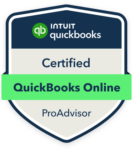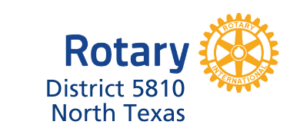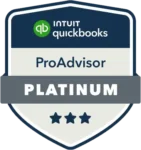According to the Corporate Transparency Act in the U.S.; The Business Ownership Information (BOI) Report is a detailed map showing who really owns parts of your company. This report is crucial because it ensures everyone knows who’s behind the scenes, promoting honesty and accuracy in business.
The main role of this report is to prevent all illegal activities like money laundering & fraud. Thus, in short, maintaining business transparency. This report includes the data of an individual of owns 25% or more than this specific percentage of the company’s shares.
Therefore, In this blog, we’ll break down what this report is, why it’s vital for business transparency, and how to create one.
By the end, you’ll understand why knowing the true owners is essential for running a trustworthy business. At LUCI Financial Solutions, we’ll assist you in understanding the importance of bookkeeping services in this modern era & how they can save your costs to boost revenue.
So, without further ado, let’s get started!
Who are Beneficial Owners – Bookkeeping Basics?
The ownership works for the Beneficial Ownership Information Report if a person owns 25% or more of the company’s shareholders either directly or indirectly. These shares can be in the form of partners, LLC members, & even stakeholders.
According to the CTA report, if a person owns two businesses with a 25% share in each, he’ll be subjected to this Beneficial Ownership Information Report.
Companies have to follow these rules to be more open and stop illegal activities like hiding illegal money. From January 1, 2024, The Financial Crimes Enforcement Network (FinCEN) supervises these rules on all different business platforms.
Companies must submit reports to FinCEN, disclosing all owners to follow the rules and keep their business honest and legal.
Want to know how it works?
For instance, the person A & B share more than 25% of the stakes in the company Meta. While the person C also owns 25% indirectly. On the other hand, he also holds a share of 100% in another company “Tesla”. Now according to CTA, all three members are considered beneficiary owners in this Meta Company.
What’s CTA?
The CTA – Corporate Transparency Act was passed back in 2021 as a part of the Anti Money Laundering Act to prevent financial crimes.
This bill allows businesses to submit a proper Beneficial Ownership Information Report to the Crimes Enforcement Network. As a result, this assists the federal government to keep an eye on the business owners & track their business finances.
Legal & Regulatory Framework:
The Beneficial Ownership Information Report is governed by laws such as the Corporate Transparency Act (CTA) in the United States. This act mandates businesses to disclose beneficial owners, defined as individuals owning or controlling 25% or more of a company, to enhance transparency and prevent financial crimes.
Recent updates include the final rule by the Financial Crimes Enforcement Network (FinCEN) effective January 1, 2024, which specifies the details required in these reports, submission deadlines, and the entities covered.
Businesses must file initial reports within 30 days of formation and update them within 30 days of any changes to ownership. These updates aim to close loopholes and improve the accuracy of ownership data.
Importance of Beneficial Ownership Information:
In this competitive era, no business wants to lose valuable financial data like transaction history & other payment records. Therefore, this BOI report has become a valuable source of managing this information & keeping the up-to-date safe for such enterprises.
Through this unique report & data management system, businesses can now trust & hold something accountable for its deals & security.
1. Financial Transparency:
Knowing who owns or benefits from financial transactions is an important advantage of Beneficial Ownership Information Reports. Such reports help the federal government to ensure who runs the enterprises, which helps prevent scams.
Clear ownership structures make it easier for investors, regulators, and stakeholders to make smart decisions by knowing who is in charge of important parts of the business. Hence, this always forces the company toward profit & prevents the wrongdoings.
2. Prevents Terrorist Financing:
The main goal of Beneficial Ownership Information Reports is to stop people from illegally putting money into the financial system and financing terrorists. It is like investing illegally & then getting profit through money laundering.
Requiring businesses to reveal who owns them helps the government keep an eye on strange money movements better. This rule helps to stop criminals from finding ways to hide illegal money and supports worldwide work to fight financial crimes.
According to recent reports, this has helped a lot of businesses to develop more with proper rights & long-term future success.
3. Ensuring Compliance with International Regulations
Following the rules set by other countries is also very important for Beneficial Ownership Information Reports. Several countries have made it a legal requirement to submit these reports to meet the global standards set by organizations like the Financial Action Task Force (FATF).
Otherwise, the investigation teams are always behind the person who tries to hide its share stokes & does illegal financing actions. Therefore, in short, following these rules helps businesses stay out of trouble with the law and makes the world’s financial system safer and more honest.
Why Do Businesses Need a Beneficial Ownership Information Report?
Businesses must submit a report about who owns the company to follow the law and avoid fines. These reports are required by laws such as the Corporate Transparency Act, which wants to make things more clear and stop illegal activities like hiding money.
Not doing what you’re supposed to could lead to big fines and legal trouble. Through this, the government ensures how much the company is making as its annual revenue & if it’s paying the taxes.
Furthermore, keeping a clear record of who owns something helps to build trust with clients and partners. It shows that the company is honest and open, which is important for building and keeping good business connections. Clear ownership structures make stakeholders feel confident that the business is honest and accountable.
Who’s Not Included In BOI Reports?
Despite the strict rules, there are some exceptions through which different business owners find themselves free of the Beneficial Ownership Information Report. According to the reports that we have collected, here are the exceptions that you must know about.
- Minors: In 2024, it’s no surprise that teenagers are controlling the whole world through social media. Therefore, the business enterprises they own make them good profit & they don’t have to deliver their BOI reports. It will be their legal guides who will have to share their information with the federal government.
- Employees: Individuals who are not senior officers in a business have nothing to do with the BOI reports & federal government inquiries.
Steps to Create a Beneficial Ownership Information Report:
As a business owner, it is important to understand the initial steps to create a proper beneficial ownership information report. These steps include identifying owners & collecting relevant information.
In short, these steps are always shared by the government like how they want your BOI reports so they can manage the data. Here check out these steps in detail.
1. Identify Beneficial Owners:
The most basic & crucial step of making a strong Beneficial Ownership Information Report is to find out who are the beneficial owners of a certain business enterprise. A beneficial owner is an individual who directly or indirectly owns 25% or more stakes in a specific business.
They have a lot of influence over the company. This defined step means people who make big decisions, have a lot of money at stake, or have important jobs in the organization. It’s really important to gather correct and complete information about these people to make sure we follow the rules and are open and honest.
2. Collect Required Information:
The next step on this list is to collect relevant & authentic information regarding the business’s beneficial owners. It includes sharing information such as your name, where you live, what is your business, and how much is your annual revenue.
Plus, you need to share your ID or passport with relevant information with the Federal government.
Checking this information is important to make sure it is correct and true. This might mean checking documents and using trustworthy sources to make sure who the real owners are (KPMG). Mainly this step is about checking the authenticity of the business owner living in that specific country’s region.
3. Prepare the Report:
Now the information is collected, it’s time to make the report. Firstly, you need to elaborate your business details in short & easy to understand words. The report needs to list all the people who benefit, what they do, and the information we’ve checked.
Starting from the business owner to the stakeholders, LLC members, & partners, this Beneficial Ownership Information Report includes all the relevant data to share with the federal government. This method helps make sure reports are consistent and complete.
4. File the Report:
The last thing we need to do is submit the report to the right people. This usually means sending the report to organizations like FinCEN in the United States. Companies are always provided with proper schedules & rules to follow for these BOI reports.
For example, for new enterprises, this BOI report is to be submitted within 30 days. And if there are any changes in who owns the company, you also need to report that within 30 days. Making sure to submit things on time and accurately helps businesses avoid getting fined and follow the rules.
Challenges & Solutions – Beneficial Ownership Information Report
Although it looks like the Beneficial Ownership Information Report is simple to make, in reality, there are certain challenges a business has to face to create this report & prove its legitimacy.
Thanks to the vast experience of our business experts, we have managed to detect these challenges & offer a simple yet effective solution for them.
- Identifying Beneficial Owners: Figuring out who counts as a beneficial owner can be hard, especially in big companies with complicated ownership setups. Misunderstanding the rules can cause reports to be wrong or not finished. Remember it’s crucial to understand the ownership structures of a business first.
- Gathering Accurate Information: It can be difficult to collect accurate and verified information about the owners who benefit from it. Companies might find it hard to check if ID documents are real and to make sure that the information given is correct.
- Maintaining Confidentiality: It’s important to keep private information safe and follow the rules for reporting it. Not handling data properly can cause privacy violations and make people lose trust.
- Compliance Costs: It can be expensive for small businesses to collect, check, and report information about who owns the business. Plus, buying this data from the companies is also quite hard & it sometimes leads to irrelevancy.
- Keeping Up with Regulatory Changes: Remember following new updates every time with the report can be a little hard. But if you don’t follow these rules, you & your business can face multiple penalties.
Best Practices – Overcoming The Challenges
- Clear Identification Criteria: Having clear rules for finding beneficial owners can make it easier to identify them accurately. This criteria comes for different business needs depending on the verification needs.
- Robust Verification Processes: Using strong procedures to check the information of owners who benefit, including checking documents and using trustworthy verification services, can improve the accuracy of data.
- Data Security Measures: Using advanced security measures to protect important information and following data protection rules can help lower the risk of privacy issues.
- Cost Management Strategies: Making plans to lower the costs of following rules, like using technology and hiring other companies to do some tasks, can make it easier for businesses.
- Regular Training & Updates: Giving staff regular training on rules and updates can help make sure they follow the rules and make fewer mistakes.
In Conclusion:
Beneficial Ownership Information Reports are important for keeping business operations open and following the rules. They make sure that the real owners are identified and reported correctly to stop financial crimes.
Fulfilling these conditions allows an enterprise to further develop into a successful business that owns the trust of its customers & government.
With LUCI Financial Solutions, you’ll get all the assistance you need to follow the rules & regulations set by the CTA community to drive your business finances to the next level.
Our team has lots of experience and can help you understand and report who owns your business. For more details and to set up a meeting, go to LUCI Financial Solutions or get in touch with us. We can help you easily make sure everything is clear and follows the rules.











